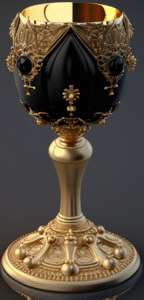

Aristotle
Aristotle (384–322 BCE) was a Greek philosopher and polymath who studied under Plato and tutored Alexander the Great. He is considered one of the most important figures in Western intellectual history, laying the foundation for numerous fields including logic, ethics, politics, biology, physics, and metaphysics.
📜 Key Facts
Born: In Stagira, a city in northern Greece (hence sometimes called “the Stagirite”).
Studied under: Plato at the Academy in Athens.
Founded: The Lyceum, his own school in Athens.
Taught: Alexander the Great.
Unlike Plato, he was more empirical, favoring observation and classification over abstract theorizing.
📚 Major Works
Aristotle wrote extensively (though many works are lecture notes). Key texts include:
Nicomachean Ethics – Virtue and the good life.
Politics – Ideal forms of government and civic life.
Metaphysics – The nature of being and reality.
Poetics – Theory of tragedy and literary criticism.
De Anima (On the Soul) – Psychology and the nature of life.
Organon – A collection of logical works.
🧠 Core Ideas
1. Logic & Syllogism
Invented formal logic, especially deductive reasoning through syllogisms.
Example:
All men are mortal.
Socrates is a man.
Therefore, Socrates is mortal.
2. Four Causes
Aristotle’s explanation for why things exist or happen:
Material Cause – What it’s made of.
Formal Cause – Its form or pattern.
Efficient Cause – What brings it about.
Final Cause – Its purpose or goal (telos).
3. Ethics: The Golden Mean
Virtue lies between extremes: courage is between recklessness and cowardice.
A good life is lived in accordance with reason and moderation.
4. Politics
Humans are “political animals” who naturally form communities.
Favored a constitutional government blending monarchy, aristocracy, and democracy.
5. Biology & Natural Sciences
Observed and classified plants and animals in great detail.
Saw nature as purposeful and hierarchical (Scala Naturae – the “Great Chain of Being”).
🔍 Differences from Plato
Plato believed in transcendent Forms; Aristotle believed form is in things themselves.
Plato was more idealist; Aristotle more realist and empirical.
Plato distrusted the senses; Aristotle trusted observation as a path to knowledge.
🌍 Influence
Major influence on Islamic and Christian medieval philosophy (esp. through Aquinas).
His work shaped Western science until the 17th century.
Still studied in ethics, logic, political science, and literary theory today.
- Ancient Greece
- Socrates
- Plato
- Aristotle